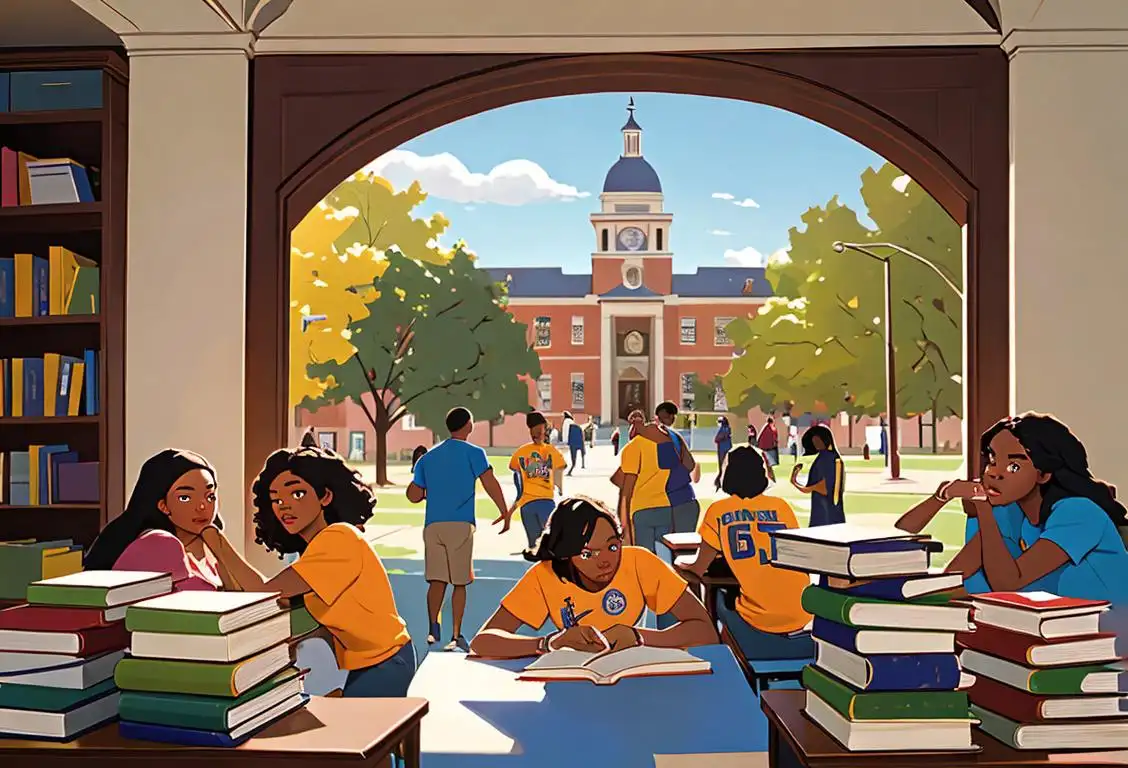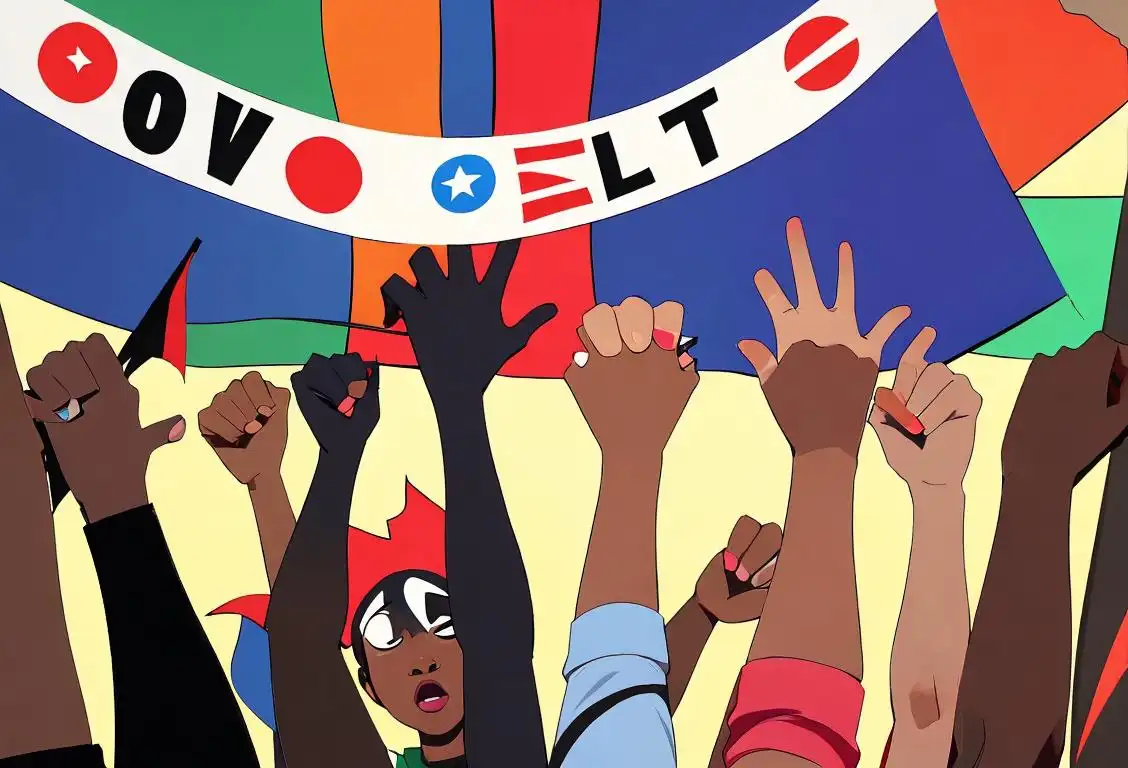National Hbcu Day

Hey there! Are you ready to dive into the wonderful world of National HBCU Day? Well, buckle up your intellectual seatbelts and get ready for a fun-filled ride!
When is Hbcu Day?
It's national hbcu day on the 17th April.
The Birth of National HBCU Day
On this wonderful day, we celebrate the rich history and invaluable contributions of Historically Black Colleges and Universities (HBCUs). National HBCU Day is a time to honor these institutions and the incredible impact they have had on millions of lives.
But how did this special day come to be? Well, let me take you back to a beautiful day in HBCU history...
It all started when a group of passionate individuals decided to shine a spotlight on these incredible educational institutions. They wanted to raise awareness about the unique opportunities and support that HBCUs provide to students of color.
After months of planning and rallying support from HBCU alumni, students, and advocates across the country, National HBCU Day was officially recognized on this memorable day. It's a day to celebrate, honor, and support HBCUs in every way possible.
The Impact of HBCUs
HBCUs have a long and proud history dating back to the 19th century. These institutions were founded at a time when African Americans were denied access to higher education in many parts of the United States.
Against all odds, HBCUs provided a safe haven for black students, offering them a chance to pursue their dreams and achieve success. Many of the most influential black leaders in history, such as Martin Luther King Jr. and Oprah Winfrey, are proud alumni of HBCUs.
Today, HBCUs continue to shape the lives of countless students, providing them with a world-class education, nurturing their talents, and empowering them to make a lasting impact on society. These institutions foster a sense of community, pride, and resilience that sets them apart.
Celebrating National HBCU Day
Now that you know the backstory, you're probably wondering how you can celebrate National HBCU Day, right? Well, I've got a few ideas for you!
- Attend a local HBCU event or forum: Check out what's happening in your area to honor and support HBCUs. It could be a panel discussion, a concert, or a community service project. Get involved and show your love!
- Donate to an HBCU fundraiser: Every little bit counts! Consider making a donation to an HBCU scholarship fund or any other initiative that supports these outstanding institutions.
- Spread the love on social media: Show your appreciation for HBCUs by using the hashtag #NationalHBCUDay. Share fun facts, personal stories, or shoutouts to your favorite HBCU!
Did You Know?
Did you know that HBCUs were instrumental in the Civil Rights Movement? Many HBCU students and alumni played vital roles in fighting for equality and social justice. Their activism and courage paved the way for a more inclusive and just society.
History behind the term 'Hbcu'
1837
The Establishment of Cheyney University
In the year 1837, the roots of Historically Black Colleges and Universities (HBCUs) began to take shape with the establishment of Cheyney University in Pennsylvania. Cheyney University was founded as the Institute for Colored Youth and aimed to provide education and uplift the African American community.
1865
The Founding of Howard University
In 1865, shortly after the end of the Civil War, Howard University was founded in Washington, D.C. It became the first HBCU to be established in the southern United States. Howard University played a significant role in providing higher education opportunities for African Americans, empowering generations of students.
1890
The Second Morrill Act
In 1890, the Second Morrill Act was enacted to further support the establishment of HBCUs. This act provided funding for the creation of land-grant colleges for African Americans. It was a significant step towards expanding educational opportunities and promoting equality in higher education.
1944
The Arrival of the Term 'HBCU'
The term 'HBCU' began gaining popularity in 1944, when the Office of Education (now the Department of Education) used the term 'Negro colleges' to designate institutions established before 1964. Over time, the acronym 'HBCU' (Historically Black Colleges and Universities) emerged and became widely recognized as the standard term to refer to these institutions.
1972
The Congressional Resolution
In 1972, a joint congressional resolution declared the week of October 22nd as 'National Historically Black Colleges and Universities Week'. This resolution aimed to recognize the contributions of HBCUs to the nation's history, culture, and education system. It further solidified the significance of HBCUs in American society.
1980
The Creation of the White House Initiative on HBCUs
In 1980, President Jimmy Carter established the White House Initiative on Historically Black Colleges and Universities. The initiative aimed to ensure equal opportunities for African American students by promoting federal support, financial assistance, and partnerships with HBCUs. It has continued under subsequent administrations, supporting the growth and development of HBCUs.
Did you know?
Did you know that HBCUs were instrumental in the Civil Rights Movement?Tagged
awareness education empowermentFirst identified
24th February 2016Most mentioned on
17th April 2019Total mentions
523Other days
Introduce A Girl To Engineering Day
Black Voter Day
Girl Child Girl Child Day
Girls In Ict Day
Hbcu Day
Punctuation Day
Student Athlete Day
Grammar Day
Women In Engineering Day
History Day








